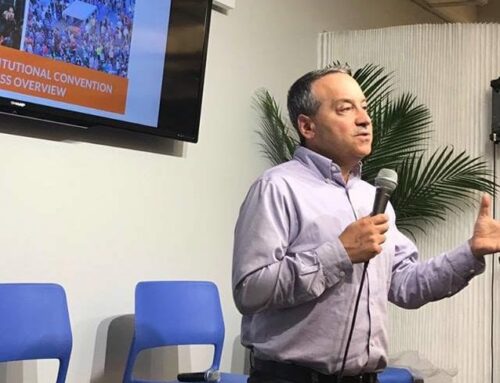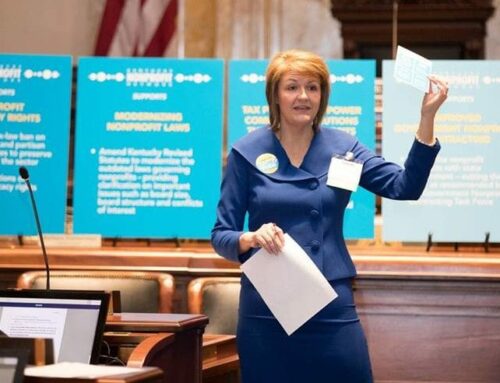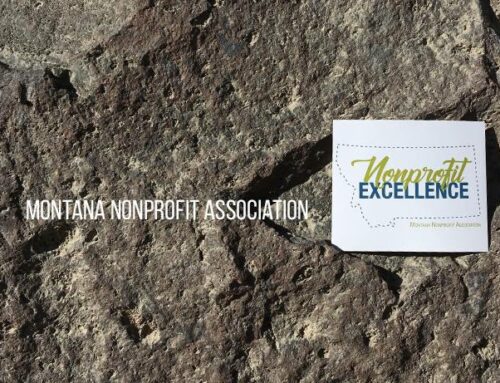“I have always focused on making people around me successful,” says Kelly Pepper, the CEO of Louisiana Association of Nonprofit Organizations (LANO). “I feel like that’s my calling. It’s a strength of mine.” At the start of her career, she was drawn to the arts and culture industry because of her love for theatre, opera, and live music performance. It was there that she first recognized and applied her passion for developing others.
Pepper initiated training and tools to help her peers and the organizations with which she worked. She functioned as a fundraiser for arts and culture groups for many years, and truly enjoyed that position.
In 2006, Pepper took a position with the state of Louisiana, where she served as the Director of Organization Services and Community Development. Working in this position, she ran a $9 million grant program for the state.
“I got to be on the other side of the table,” Pepper says. “I was able to look at the investment the state was making in arts and culture and see the impact.” While Pepper was working for the state, her current CEO position became available at LANO, and she transitioned into that role. Her various positions have prepared her with valuable experiences, as the work she does at LANO includes everything from acting as the organization’s chief fundraiser to heading public policy and advocacy efforts.
“I got to be on the other side of the table…I was able to look at the investment the state was making in arts and culture and see the impact.” – Kelly Pepper
Pepper’s background has helped the organization to gain new perspectives that have not necessarily been present in the leadership until now. LANO has been serving nonprofits in Louisiana for twenty years. However, although the organization has had four previous CEOs, Pepper is the first to have an arts and culture background.
“Arts organizations tend to separate themselves from the rest of the sector,” Pepper notes. “Since they have the live performance element, they tend to think of themselves as being different operationally.” Yet Pepper sees no reason to draw a line between these organizations and the rest of those that LANO serves.
“A nonprofit is a nonprofit is a nonprofit,” she says. Many of the best practices still apply. The majority of nonprofits with which LANO and Pepper now work are not arts and culture organizations. However, Pepper notes that Louisiana itself is culturally distinct, with strong connections to food, music, and history. For example, the state is strongly associated with the Mardi Gras celebration. As LANO’s CEO, Pepper has helped highlight the opportunities in Louisiana to reach out to arts and culture organizations.
“A nonprofit is a nonprofit is a nonprofit.” – Kelly Pepper
Because of Pepper’s past experiences and current leadership, LANO’s relationship with these nonprofits is definitely growing stronger. Pepper has noticed an increase in arts and culture organizations that participate in LANO events since she became CEO.
“People are becoming more aware of the need to pull together,” she says. “There are limited resources, and we have to work together.” One of the ways LANO helps nonprofits work together is hosting LANO connect events. These events take place across Louisiana, providing networking opportunities and professional development resources. Pepper’s goal with these meetings is to make them open and friendly so that nonprofit leaders and staff members to feel comfortable and to benefit from the experience.
“People are becoming more aware of the need to pull together…There are limited resources, and we have to work together.” – Kelly Pepper
LANO has other resources beyond these events. Their Community Leaders Program has been helping nonprofit professionals for fourteen years. In the program, LANO trains leaders using a five part series on best practices for being a board member. Participating professionals learn roles and responsibilities, financial management, and fund management.
To gain skills in these areas, leaders are not simply sitting through lectures; the education process is very hands-on. Each participant selects one nonprofit from a variety of those that apply for the program, and he or she helps fundraise for that organization. At the close of the program, leaders are placed in a nonprofit to serve as a board member through a sort of “speed dating” system.
“Most of the people who have gone through this program, even years or a decade ago, are still serving on boards,” Pepper says. She sees the benefits of the Community Leaders Program in the alumni who are continuing to work hard within the sector.
“When a crisis happens, these board members are equipped to respond,” Pepper affirms. LANO also has a Community Coaches Program, which allows skilled volunteers to help with less intensive projects. LANO partners with Blue Cross and Blue Shield of Louisiana to complete these projects. For one project, two Blue Cross employees translated all of the materials for Life of a Single Mom into Spanish in order to reach a new demographic for the organization.
“When a crisis happens, these board members are equipped to respond.” – Kelly Pepper
Both the Community Leaders Program and the Community Coaches Program are expanding in the coming year, and this is exciting for LANO, for nonprofit leaders and staff members, and especially for the many nonprofits that will benefit from trained leaders and volunteers. With Pepper as the CEO, LANO continues to look forward to how it can serve nonprofits in the future.
One of the strategies Pepper emphasizes with nonprofits is the importance of succession planning, and she seeks to enact this priority within her own organization as well. If a director is leaving, the lack of a previously developed plan can leave any organization in a state of uncertainty. Establishing everything from where banking information is stored to how to effectively search for a new executive can prepare a nonprofit for changes that inevitably occur.
“This is a hard and often messy topic to address,” Pepper acknowledges. “But it is crucial.” With every new hire at LANO, she begins by discussing their exit strategy. Often, people can be scared by this, but Pepper’s goal is to build open relationships and understand what each employee is looking to accomplish.
“It is my responsibility to set people up for their next position, while also making sure they are very successful in their current role,” Pepper says. “We have an amazing team, and I need to protect that.” As she leads LANO in this manner, Pepper aims to help other nonprofits in Louisiana begin to see these conversations in a positive light and to understand why they are necessary. This way of thinking, along with the many resources that LANO provides, can help nonprofits continue to thrive in Louisiana.





